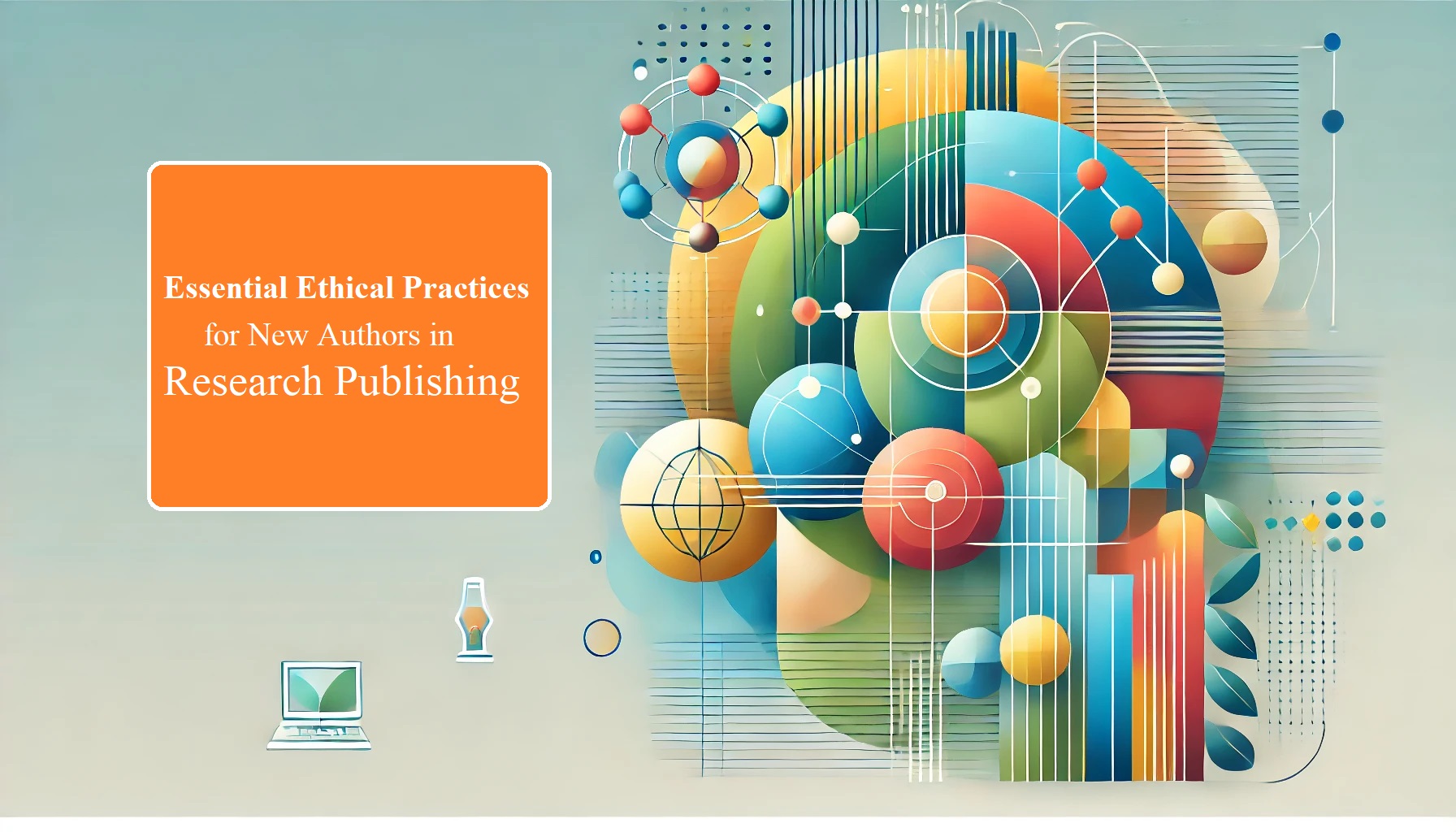Publishing research is a vital aspect of an academic career, but navigating the ethical landscape can be daunting for new authors. Adhering to ethical standards ensures the integrity of your work and builds your reputation in the scholarly community. Below is a detailed guide on the essential ethical practices every new author should follow.
Avoiding Misconduct and Ensuring Integrity
Authorship Ethics
The issue of authorship ethics is often misunderstood, leading to conflicts or misrepresentation. Authors listed on a paper should have made significant contributions, such as conceptualizing the study, designing experiments, analyzing data, or drafting the manuscript. Practices like “gift authorship,” where a person not involved in the research is credited, and “ghost authorship,” where a contributor is excluded, must be avoided. To ensure clarity, authors should discuss roles at the project’s inception and document agreements on authorship. Tools like the Contributor Roles Taxonomy (CRediT) provide a structured way to attribute contributions, helping to prevent misunderstandings and maintain transparency.
Preventing Plagiarism
Plagiarism, whether intentional or accidental, can severely damage a researcher’s credibility. Authors must give proper credit to all sources, whether quoting directly, paraphrasing, or referencing ideas. Using quotation marks for direct citations and providing detailed references are essential. Employing plagiarism detection tools like iThenticate or Turnitin can help identify and address unintentional similarities before submission. Additionally, authors must ensure they obtain permissions for reused figures or tables from prior publications and give due acknowledgment to the original publishers, preventing ethical and legal complications.
Responsible AI Use in Manuscript Preparation
With the rise of Generative AI tools like ChatGPT and Gemini, researchers are increasingly using technology to assist with writing. While these tools can enhance grammar and structure, they must not replace an author’s intellectual contribution. Authors should use AI tools judiciously for language refinement or formatting but remain accountable for the content and its originality. Journals may require disclosure of AI involvement, so familiarize yourself with the specific policies of your target publication. Ethical AI use ensures that the research reflects the authors’ expertise and insights rather than being automated.
Avoiding Data Manipulation
The integrity of research relies on truthful and accurate reporting of data. Falsifying, fabricating, or selectively presenting data to support hypotheses is unethical and can have severe consequences, including retraction or damage to professional reputation. Authors must ensure that all results, even those that contradict the initial hypothesis, are reported honestly. Maintaining raw datasets and metadata for verification by reviewers or replicators is crucial. Moreover, using statistical tools appropriately and consulting a statistician when needed can help avoid inadvertent errors in data presentation.
Responsible Preprints Sharing
Preprints platforms enable faster dissemination of research, but authors must use them responsibly. Posting to reputable preprint repositories, like AIJR Preprints, arXiv or bioRxiv, ensures visibility while maintaining credibility. Before submitting to a journal, verify its stance on prior preprint publication to avoid issues like duplicate submissions.
Disclose Conflicts of Interest
Conflicts of interest arise when personal, financial, or professional affiliations may influence the outcomes or interpretation of research. Authors should disclose all potential conflicts, including funding sources, institutional affiliations, or relationships that might impact the study. Most journals provide a standard conflict-of-interest guidelines aligned with ICMJE & COPE guidelines. Transparency about these factors ensures readers can evaluate the research’s credibility and helps maintain ethical standards in scholarly publishing.
Avoid Citation Manipulation
Citation manipulation is a growing concern in academic publishing, where authors deliberately or inadvertently misuse citations to inflate metrics or misrepresent the scholarly context. Practices such as excessive self-citation, coercive citation (where journals or editors pressure authors to cite unrelated works from the same journal), or irrelevant citations to unrelated studies distort the academic record. To avoid these, authors should cite works based solely on their relevance and contribution to the study. Before citing, evaluate whether the reference genuinely supports or informs your argument, methodology, or findings. Use tools like reference managers (e.g., Zotero, Mendeley) to track citations systematically and avoid accidental over-citation of a single source. Additionally, avoid “citation stacking,” where mutual agreements between authors or groups inflate each other’s citation counts. Authors should prioritize quality over quantity in references, ensuring each citation adds value to the research narrative. Following these guidelines not only maintains ethical standards but also ensures a meaningful and accurate scholarly dialogue.
Identifying and Avoiding Predatory Publishers
The lure of rapid publication can lead unsuspecting authors into the trap of predatory publishers. These journals lack rigorous peer review and prioritize profit over quality, ultimately harming an author’s reputation. To avoid them, be wary of unsolicited invitations, excessive publication fees, and vague editorial board details. Selecting a reputable journal ensures your work receives the recognition and readership it deserves.
Concluding Remark
Ethical practices in research publishing are non-negotiable for maintaining the integrity of the academic ecosystem. By following above guidelines, authors not only safeguard their reputation but also contribute to a culture of trust and excellence in research. Understanding and implementing these practices is essential, especially for new authors, to navigate the complexities of scholarly publishing successfully.
Ethics in research and authorship encompass integrity, accountability, and transparency in all stages of scholarly work. For authors, this involves proper attribution of contributions, avoiding plagiarism, and ensuring originality in their submissions. Ethical research demands honesty in data collection, analysis, and reporting, steering clear of fabrication or falsification. It also includes full disclosure of conflicts of interest, adherence to journal guidelines, and responsible use of emerging technologies like AI in writing. Authors must avoid citation manipulation, maintain respect for subjects through ethical experimentation, and comply with legal requirements. Together, these principles uphold the credibility of the academic community and ensure meaningful contributions to scientific progress.
